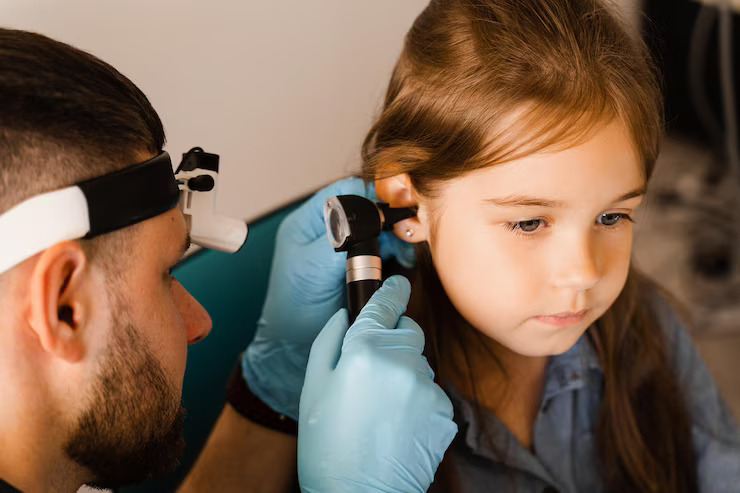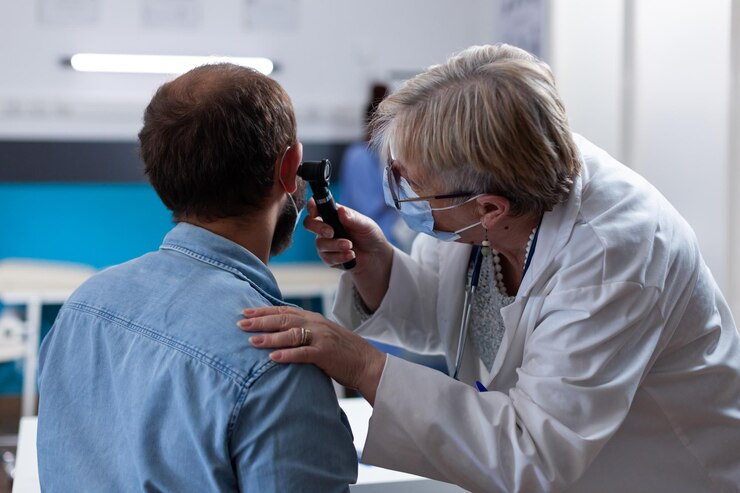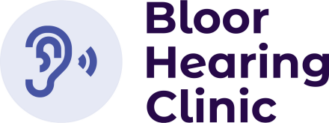
Our Blog
Can Audiologists Be Considered as Doctors or Physicians?
If you ever find yourself struggling to hear conversations or needing the TV volume louder than usual, this is a sign of hearing loss. Individuals seeking treatment for this surprisingly common condition may need to see an audiologist.
Audiologists typically offer a comprehensive suite of services to address hearing health. This includes education for patients and their families on various hearing loss topics, like noise-induced hearing loss and age-related hearing decline. They also provide skills in treating hearing loss and fitting patients with appropriate hearing devices, be it hearing aids or a cochlear implant (in cases of profound hearing loss).

There can be queries on whether or not audiologists are medical doctors. This article aims to provide an answer to this popular question. We will also dive into what audiologists do, their educational requirements, their occupational experiences, and what sets them apart from other hearing health care professionals.
Is an Audiologist a Doctor?
While audiologists are licensed healthcare professionals, typically known as “ear doctors”, they are not medical doctors. Medical doctors, such as Ear Nose, and Throat (ENT) doctors can perform pharmaceutical or surgical treatment and prescribe medications for treating diseases in the ear. They attend medical school and complete a medical course of treatment, such as otolaryngology.
Meanwhile, audiologists focus on non-medical treatments for hearing and balance disorders, including tinnitus treatment. A tinnitus audiologist is a subspecialty within audiology, but most audiologists have the training and experience to effectively manage tinnitus. They can offer a range of treatment options to help you cope with the ringing or buzzing sounds in your ears.

Audiologists generally have extensive training in the human auditory system and in-depth knowledge that allows them to:
-
Diagnose hearing loss and balance disorders
-
Develop a personalized treatment plan
-
Manage hearing loss and balance system dysfunction across all ages
-
Work closely with hearing health care professionals (ENT doctors, primary care physicians, and speech-language pathologists)
They also guide patients and their families in understanding the underlying causes of their hearing loss and other hearing health issues.
What Is the Difference Between an Audiologist and Hearing Instrument Specialist?
Hearing care professionals usually differ in both their education and skill set. Audiologists and hearing instrument specialists play vital roles in improving hearing health, but their areas of expertise differ.
Hearing instrument specialists, sometimes called hearing aid dispensers, are technicians with a strong focus on hearing aids. They typically hold a two-year associate’s degree or complete specialized training programs. Their expertise lies in fitting, programming, adjusting, and maintaining hearing aids, as well as assistive listening devices.
Hearing aids Toronto specialists use their knowledge of different hearing aid models and technologies to find the best fit for your hearing loss and lifestyle.
What Does an Audiologist Do?
Audiologists wear many hats. They conduct various hearing tests to assess the type and severity of hearing loss. This might involve pure tone audiometry, speech audiometry, or other specialized tests. Based on the results, they develop a treatment plan that could include the following services:
-
Hearing examinations
-
Hearing aid fitting, adjustment, and maintenance
-
Hearing and speech rehabilitation programs
-
Protective hearing devices from noise-induced hearing loss
-
Hearing counseling to redevelop language recognition skills
Basic hearing test Toronto providers, with their professional audiologists, help safeguard residents’ hearing health. Noise in the bustling cityscape is a major culprit behind hearing problems, so getting regular checkups is vital.
Furthermore, some audiology clinics might offer professional ear cleaning services as part of their overall hearing health care, performed by a qualified professional but not necessarily the audiologists themselves.
What Are the Educational Requirements to Become an Audiologist?
To practice audiology in Canada, one needs a minimum of a master’s degree in audiology from an accredited university. This rigorous program typically takes four years after completing a bachelor’s degree.
The curriculum covers both the science of hearing and balance, as well as clinical skills in areas like hearing testing, hearing aid fitting, and aural rehabilitation. Following their education, audiologists must also complete supervised clinical experience and pass a national certification exam.
They gain these valuable clinical experiences through work in diverse settings, such as:
-
Hospitals
-
Community clinics and private practices
-
Industrial hearing programs
-
University or college clinics
They may also collaborate with educational agencies or schools for the hearing impaired.
There is an option for audiologists to continue earning education credits to fulfill and maintain licensing requirements in Canada. Regulatory bodies typically mandate audiologists to complete a certain number of continuing education credits (CEUs) within a specific timeframe, usually over a three-year cycle.
What Experience Do Most Audiologists Provide?
Audiologists are dedicated health professionals with a passion for helping people hear better. They possess a comprehensive knowledge of the auditory system, hearing loss, and balance disorders, also known as vestibular system dysfunction.
Because hearing loss can differ greatly from person to person, audiologists excel at communication and counseling, working closely with patients to understand their unique needs and develop the most effective treatment plan.
Many audiologists also have experience working with people of all ages, from infants with hearing impairments to older adults experiencing age-related hearing loss. They collaborate effectively with other healthcare professionals, such as ENT doctors, to ensure patients receive the best possible care.
The next time you have questions or concerns about hearing loss, balance issues, or even just want advice on hearing protection, consider consulting an ear clinic Toronto audiologist. Their expertise and dedication can make a world of difference in your ability to hear the world around you.
